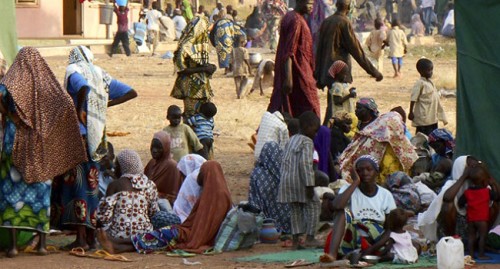The International Centre for Energy, Environment and Development (ICEED) in partnership with Mercy Corps is implementing a project aimed at strengthening resilience in six of the local government areas (LGAs) affected by insurgency in Borno State.

The Borno “MAIDA” project reportedly aligns with the global objective of the EU’s planned support for early recovery in the state. The European Commission is funding the project.
To this end, ICEED is building the capacity of 280 IDPs returnees in the production of fuel efficient cookstoves as well as the installation and maintenance of solar PV systems across six LGAs. The inaugural training was conducted in Jere LGA and lasted from October 15 to 29, 2018 with the training of 38 IDPs returnees on the production of fuel efficient cookstoves. The training will be replicated in Biu, Hawul, Kwaya Kussa, Mafa, and Bama/Gwoza LGAs.
Executive Director of ICEED, Ewah Eleri, in his remark, said: “This project seeks to enhance recovery and strengthen resilience in Borno State through capacity building for improved livelihoods as lack of opportunities for employment and meaningful livelihood contributes to youth restiveness and tension.
“Adopting alternative fuels and energy technologies can create jobs for IDPS, especially women and youths. The use of fuel efficient cookstoves produced by the trainees will also reduce the health risks of indoor air pollution faced by women and children in addition to improving efficiency in fuelwood usage and thereby contributing to addressing climate change,” he concluded.
The project was informed by an assessment conducted by Mercy Corps and ICEED in March 2017 across Biu, Hawul, Kwaya Kusa, Mafa, Jere and Maiduguri metropolis, which showed a limited access to cooking energy.
The conflict has apparently increased the rate of deforestation, resulting in degradation of watersheds and increased fuelwood collection by IDPs and communities across the LGAs. The absence of government support for agro-forestry activities and ongoing military activities as led to the decreasing tree cover. Other alternatives like kerosene and LPG seem either in short supply or nonexistent in some communities.
“Access to household energy is vital to improved livelihood; however, this is often highly constrained in conflict-affected areas. Poor energy access can have a debilitating effect on the recovery and resilience of conflict affected populations. Access to fuel-efficient stoves, cooking fuel and lighting is usually a minimum standard in humanitarian response. However, while clean cookstoves and lighting are all recognised as lifesaving non-food items provided to IDPs, these minimum requirements are not often met,” said Eleri.
